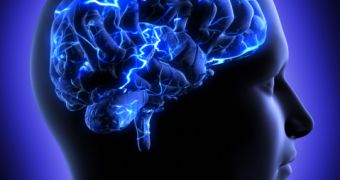A new paper in the journal Science gives literal meaning to the phrase “getting brainwashed.” Long story short, researchers at the University of Rochester say that, according to their investigations, the human brain cleans itself during sleep.
In their study, the scientists detail that, while monitoring laboratory mice, they found that, as the animals slept, the amount of cerebrospinal fluid that reached their brain greatly increased.
Thus, the rodent's body was “pumping fluid into the brain and removing fluid from the brain in a very rapid pace.”
As far as the researchers could tell, this increase in the flow of cerebrospinal fluid helped flush out most of the toxins that had accumulated in the mice's brain during daytime.
“It's like a dishwasher,” Professor Maiken Nedergaard sums up the behavior of the mice's brain during sleep, as cited by NPR.
“We show that natural sleep or anesthesia are associated with a 60% increase in the interstitial space, resulting in a striking increase in convective exchange of cerebrospinal fluid with interstitial fluid [fluid present between brain cells],” the researchers detail in their paper.
“The restorative function of sleep may be a consequence of the enhanced removal of potentially neurotoxic waste products that accumulate in the awake central nervous system,” they further argue.
By the looks of it, the brain chooses to clean itself during sleep and not during daytime in order to avoid having to juggle one too many tasks at the same time.
“It's probably not possible for the brain to both clean itself and at the same time be aware of the surroundings and talk and move and so on,” Professor Maiken Nedergaard theorizes.
The researchers who carried out this investigation are quite convinced that their findings also hold true in the case of humans, and that this is why people seem utterly unable to think clearly after a sleepless night.
They also theorize that their findings could explain why sleep disorders and mental ones appear to often go hand in hand, and maintain that, at some point in the future, it might be possible to use controlled sleep as a treatment option for disorders linked to buildup of various chemicals in the brain.

 14 DAY TRIAL //
14 DAY TRIAL //